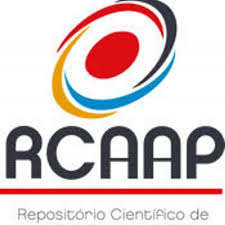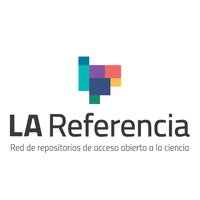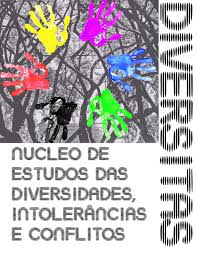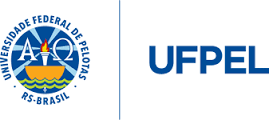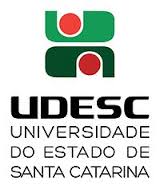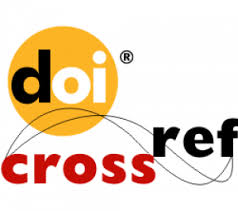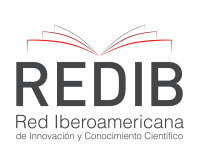O ensino de línguas mediado por computador: relações de pesquisa nos contextos brasileiro e canadense
Resumo
Palavras-chave
Texto completo:
PDFReferências
ALLWRIGHT, R. L. What do we want teaching materials for? ELT Journal, v. 36, n. 1, p. 5-18, 1981.
BLAKE, R. Brave new digital classroom: technology and foreign language learning. Washington: Georgetown Press, 2008.
BOUCHARD, P. Network promises and their implication. Revista de Universidad y Sociedad del Conocimiento, v. 8, n. 1, p. 288- 301, 2011.
BRASIL. Ministério da Educação. Secretaria da Educação Fundamental. Parâmetros curriculares nacionais – Linguagens, Códigos e suas Tecnologias. Brasília: MEC/SEEF, 1998. Disponível em: . Acesso em: 1 ago. 2013.
BYGATE, M.; SKEHAN, P; SWAIN, M. Researching pedagogic tasks: second language learning, teaching and testing. Harlow: Longman, 2001.
CANNIVENG, C.; MARTINEZ, M. Materials development and teacher training. In: TOMLINSON, B. (Ed.). Developing materials for language teaching. London: Continuum, 2003. p. 479-489.
CARROLL, F.; KOP, R.; WOODWARD, C. Sowing the seeds of learner autonomy: transforming the VLE into a third place through the use of web 2.0 tools. In: European Conference on E-Learning, 2008, Universidade de Chipre. 7th European Conference on e-Learning. Chipre: Academic Publishing International, 2008. p. 152-160.
CHAPELLE, C.; LUI, H. Theory and research: investigation of “authentic” CALL tasks. In: EGBERT, J.; HANSON-SMITH, E. (Ed.). CALL environments. Alexandria: TESOL Publications, 2007. p. 111-130.
COSTA, L. A mediação do professor na interação do aprendiz com o material didático em contextos pedagógicos distintos: o presencial e o virtual. 2001. 186 f. Dissertação (Mestrado em Linguística Aplicada) – Instituto de Estudos da Linguagem, Universidade Estadual de Campinas, Campinas, 2001.
DEREWIANKA, B., Developing electronic materials for language teaching. In: B. Tomlinson, B. (Ed.). Developing materials for language teaching. London: Continuum, 2003. p. 199-220.
DWYER, D.; RINGSTAFF, C.; SANDHOLTZ, J. Changes in teachers' beliefs and practices in technology-rich classrooms. Educational Leadership, v. 48, p. 45-52, 1991.
FULLAN, M. The three stories of education reform. 2000. Disponível em: Acesso em: 5 ago. 2013.
FULLAN, M.; SMITH, G. Technology and the problem of change. 1999. Disponível em: Acesso em: 6 ago. 2013.
HARGREAVES, A.; FULLAN, M. What's worth fighting for out there? New York: Teachers College Press, 1998.
JOHNSON, K. Second language teacher education: a sociocultural perspective. New York: Routledge, 2009.
KOP, R. Networked connectivity and adult learning: social media, the knowledgeable other and distance education. 2010. 354 f. (Tese de Doutorado) – University of Wales/Swansea University, Swansea, Kingdom, 2010.
LANTOLF, J. Introducing sociocultural theory. In: ______. Sociocultural theory and second language learning. Oxford: Oxford University Press, 2000, p. 27-50.
LANTOLF, J.; THORNE, S. Sociocultural theory and the genesis of second language development. Oxford: Oxford University Press, 2006.
LEONTYEV, A. Psychology and the language learning process. Oxford: Pergamon, 1981.
LIMA, M. Collaborative tasks and learning occasions in English as a foreign language. Revista Brasileira de Linguística Aplicada. Belo Horizonte, v. 11, n. 4, p. 837-852, 2011.
LIMA, M. S.; COSTA, P. Estudos sobre aprendizagem colaborativa em língua estrangeira: relações de pesquisa no contexto brasileiro e canadense. Interfaces Brasil/Canadá, Rio Grande, n. 11, p. 143-156, 2010a.
______. O diálogo colaborativo como ação potencial para a aprendizagem de línguas. Trabalhos em Linguística Aplicada, Campinas, v. 49, n. 1, p. 167-184, 2010b.
LUKE, C. Cyber-schooling and technological change: multiliteracies for new times. In: COPE, B.; KALANTZIS, M. (Ed.). Multiliteracies: literacy learning and the design of social futures. London: Routledge, 2000. p. 69-91.
MITCHELL, R; MYLES, F.; MARSDEN, M. Second language learning theories. London: Routledge, 2013.
OXFORD, R. Language learning strategies: what every teacher should know. Boston: Heinle & Heinle Publishers, 1990.
PINHO, I.; LIMA, M. Teacher’s digital fluency: a new competence for foreign language teaching. Revista Brasileira de Linguística Aplicada, Belo Horizonte, v. 13, n. 3, p. 711-739, 2013.
QUEVEDO, A. O ensino semipresencial do ponto de vista do aluno. Revista e-Curriculum, São Paulo, v. 7, p. 2-22, 2011.
SCHÖN, D. The reflective practioner: how professionals think in action. New York: Basic Books, 1983.
SKEHAN, P. A cognitive approach to language learning. Oxford: Oxford University Press, 1998.
SWAIN, M. Integrating language and content teaching through collaborative tasks. The Canadian Modern Language Review, Toronto, v. 58, n. 1, p. 44-63, 2001.
______. Languaging, agency and collaboration in advanced second language proficiency. In: BYRNES, H. Advanced language learning: the contribution of Halliday and Vygotsky. London: Continuum, 2006. p. 95-108.
______. The output hypothesis and beyond: mediating acquisition through collaborative dialogue. In: LANTOLF, J. Sociocultural theory and second language learning. Oxford: Oxford University Press, 2000. p. 97-114.
______. Three functions of output in second language learning. In: COOK, G.; SEIDLHOFER, B. (Ed.). Principle and practice in Applied Linguistics. Oxford: Oxford University Press, 1995. p. 125-144.
SWAIN, M; LAPKIN, S. Focus on form through collaborative dialogue: exploring task effects. In: BYGATE, M.; SKEHAN, P.; SWAIN, M. Researching pedagogic tasks: second language learning, teaching and testing. London: Longman, 2001. p. 98-118.
______. Interaction and second language learning: two adolescent French immersion students working together. The Modern Language Journal, v. 82, n. 3, p. 320-337, 1998.
______. Problems in output and cognitive processes they generate: a step toward second language learning. Applied Linguistics, v. 16, p. 371-391, 1994.
TOCALLI-BELLER, A.; SWAIN; M. Reformulation: the cognitive conflict and L2 learning it generates. International Journal of Applied Linguistics, v. 15, n. 1, p. 5-28, 2005.
TOMLINSON, B. Materials development for language learning and teaching. Language Teaching, v. 45, n. 2, p. 143-179, 2012.
VERGNANO-JUNGER, C. Elaboração de materiais para o ensino de espanhol como língua estrangeira com apoio da Internet. Calidoscópio, v. 8, n. 1, p. 24-37, 2010.
VYGOTSKY, L. A formação social da mente: o desenvolvimento dos processos psicológicos superiores. São Paulo: Martins Fontes, 1998.
______. Mind in society: the development of higher psychological processes. Cambridge: Harvard University Press, 1978.
WELLS, G. Dialogic inquiry: towards a sociocultural practice and theory of education. New York: Cambridge University Press, 1999.
WILLIS, J. A framework for task-based learning. Harlow: Longman, 1996.
WILLIS, D.; WILLIS, J. Doing task-based teaching. Oxford: Oxford University Press, 2007.
WOOD, D.; BRUNER, J.; ROSS, G. The role of tutoring in problem solving. Journal of child psychology and psychiatry, v. 17, p. 89-100, 1976.
Apontamentos
- Não há apontamentos.
ISSN eletrônico: 1984-5677
ISSN impresso: 1519-0994






